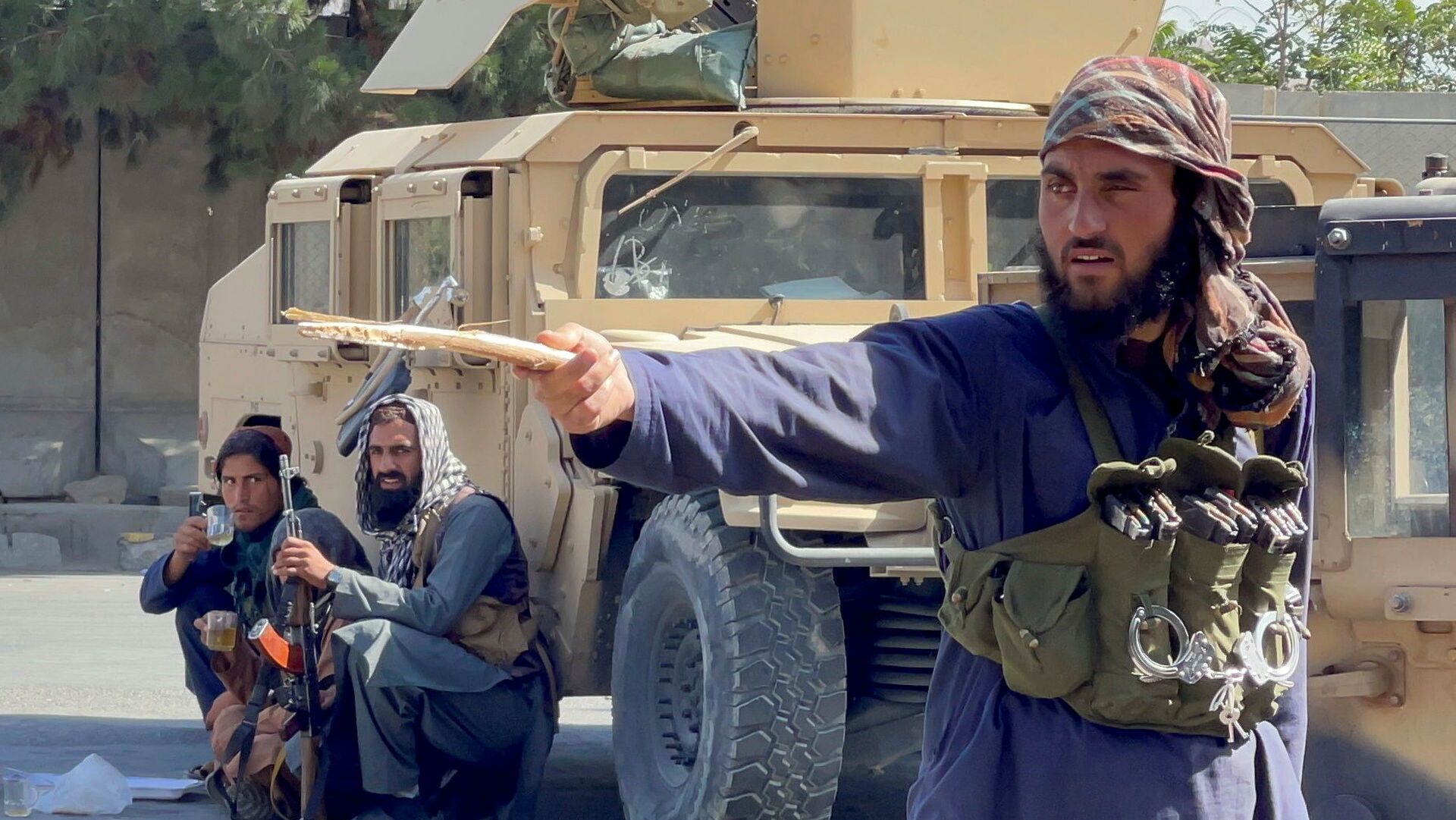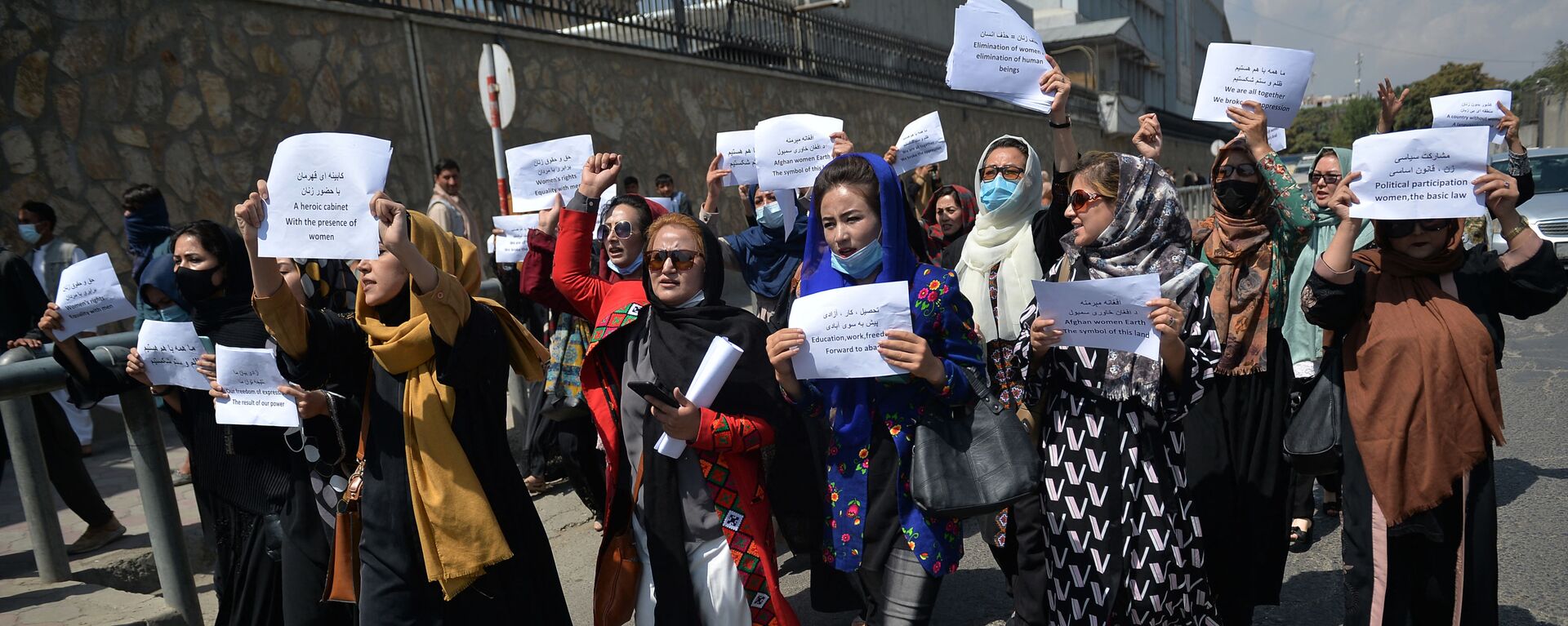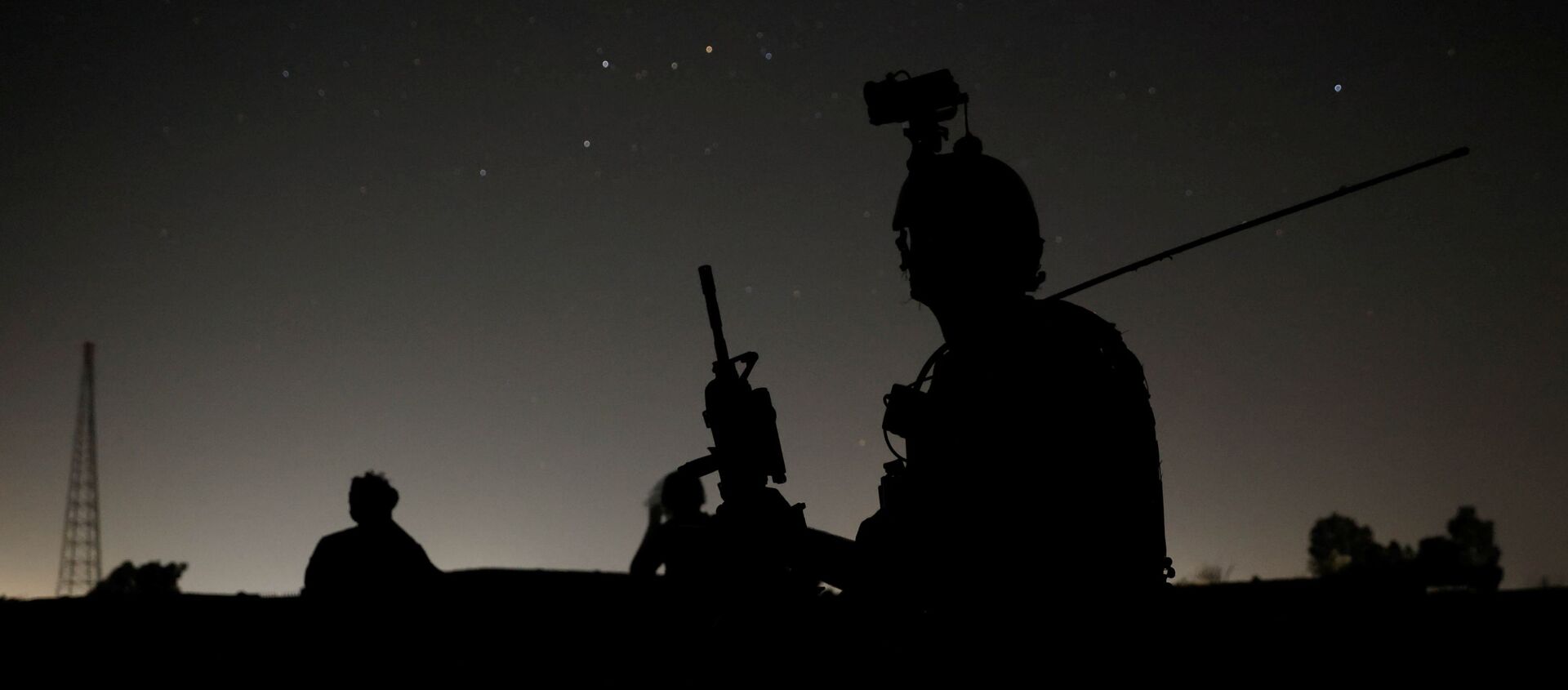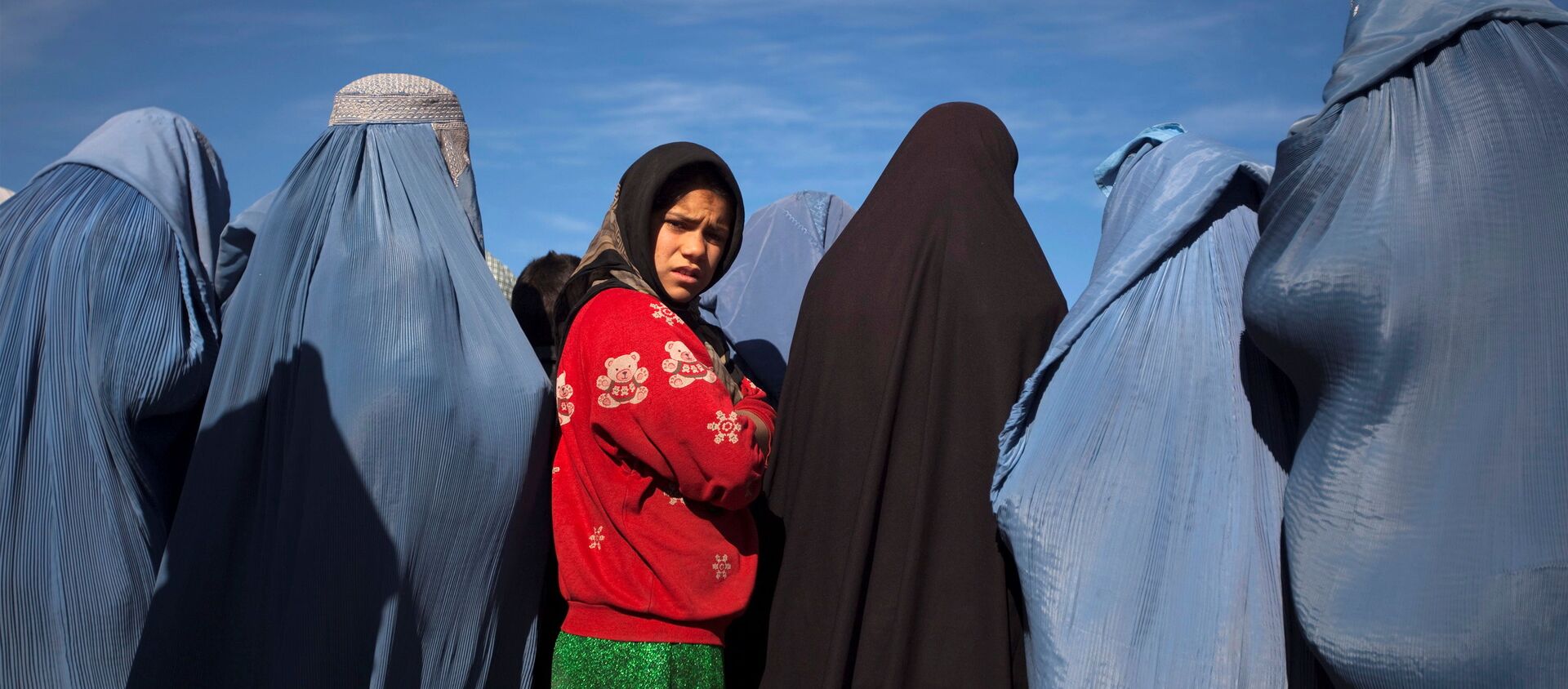Some Former Afghan Officials Literally Hiding Underground After Taliban Takeover, Report Says

© REUTERS / STRINGER
Subscribe
Taliban militants captured the Afghan capital on 15 August. The last US forces withdrew from Afghanistan on Monday. President Biden vowed that America would continue work to take at risk persons out of the war-torn country even after its withdrawal, but did not specify how Washington would do so.
Former Afghan officials and security personnel, as well as activists, journalists and women who worked with the Afghan government are now hiding out in literal “underground facilities” while searching for opportunities to escape the country, Newsweek reports, citing individuals said to be engaged in the operations.
One organizer, identified only as Niamatullah and described as a former governor of two separate Afghan provinces, is said to be protecting 156 people hiding out across 12 separate facilities in provinces neighbouring Kabul.
The secret locations are said to have been rented out by locals with a record of working for the government, and to contain a broad range of individuals, including former activists, ex-cops, security personnel, women and children.
Niamatullah told Newsweek that he has been on the run since August, changing his whereabouts and phone number regularly as the Taliban have searched for him.
The former official said the facilities are solar-powered, feature basic amenities and even limited cellphone reception and internet. Food, medicine and other supplies are said to be provided by a complex delivery process of changing phone numbers and meeting points designed to ensure security.
Naser Waziri, a former security advisor who is working with Niamatullah, said that the individuals on the run plan to remain in hiding until a way to escape the country can be found.
Nasrim, a women’s rights activist and journalist from Kabul, who is hiding in the city separately from the group of underground runaways, accused the US of failing to protect her and other women’s rights activists. “Americans didn’t protect us. They left us in this situation [where] there was no direct physical assistance that would evacuate women. No one helped us and I don’t know why,” she said. The activist is convinced she will be killed if she stays in Afghanistan, and told Newsweek that she has received phone calls from random people claiming they want to “help” and “protect” her while asking about her location.

3 September 2021, 14:08 GMT
Waziri indicated that one possible option for the people hiding out is to head to Tajikistan, the former Soviet republic which neighbours Afghanistan to the north, and either settle there or head there temporarily until refugee applications to the United States or a European country can be processed.
Tajik authorities announced this week that the country will not be able to accept refugees from Afghanistan en masse, citing security fears and the prospect of an increase in the smuggling of weapons and drugs, as well as the potential for militants to be transferred into the country disguised as refugees.
Interior Minister Ramazon Rakhimzoda told reporters Thursday that his country “does not have the capacity to accommodate a large number of refugees and asylum seekers,” and indicated that Dushanbe has appealed for international assistance after allocating 70 hectares of land near the Afghan border to receive refugees. Tajikistan has already provided asylum to over 15,000 people from Afghanistan over the past 15 years, according to Rakhimzoda.
In addition to Tajikistan, tens of thousands of Afghans have recently fled to Iran and Uzbekistan.

2 September 2021, 15:11 GMT
Niamatullah said the plan for the underground is not yet clear, and that his group was looking for assistance from non-government organizations to assist. In the meantime, he expressed hope that the international community could somehow pressure the Taliban into allowing Afghans to freely leave the country.
Officials in the US and Europe including President Biden and British Prime Minister Boris Johnson have said repeatedly that their conditions for any kind of possible recognition of a Taliban-ruled Afghanistan would include providing the right for safe exit for those who seek to leave the war-torn country.
The militants agreed to allow tens of thousands of Afghans to escape Kabul during last month’s evacuation, but said they “won’t let Afghans be taken out” on evacuation flights after the 31 August deadline.
In recent weeks, the Taliban have promised not to harm former government officials and security personnel, and has even invited some of them into their new self-proclaimed ‘Islamic Emirate of Afghanistan’ government. However, Sputnik has also reported on numerous instances of Taliban militants hunting down and killing, torturing, arresting, beating or threatening former interpreters, security officers and others who worked for the now defunct Afghan government.
Last month, US media reported that the Taliban had drawn up detailed lists of individuals to be targeted after studying ministry of defence, ministry of interior and National Directorate of Security records, and that in addition to pursuing former officials, the militants sometimes threatened their families as well. Unlike interpreters and some government officials, members of the Afghan security forces, which numbered over 300,000 strong at its height, are not automatically eligible for special visa programmes put in place by the US government.
In his speech Tuesday dedicated to the conclusion of the US withdrawal from Afghanistan, President Biden boasted that the US had managed to airlift 100,000 Afghan nationals out of the country, calling the mission an “extraordinary success,” and promising that the US would somehow “continue to work to help more people leave the country who are at risk.” The president did not elaborate how the US planned to achieve the latter goal.


